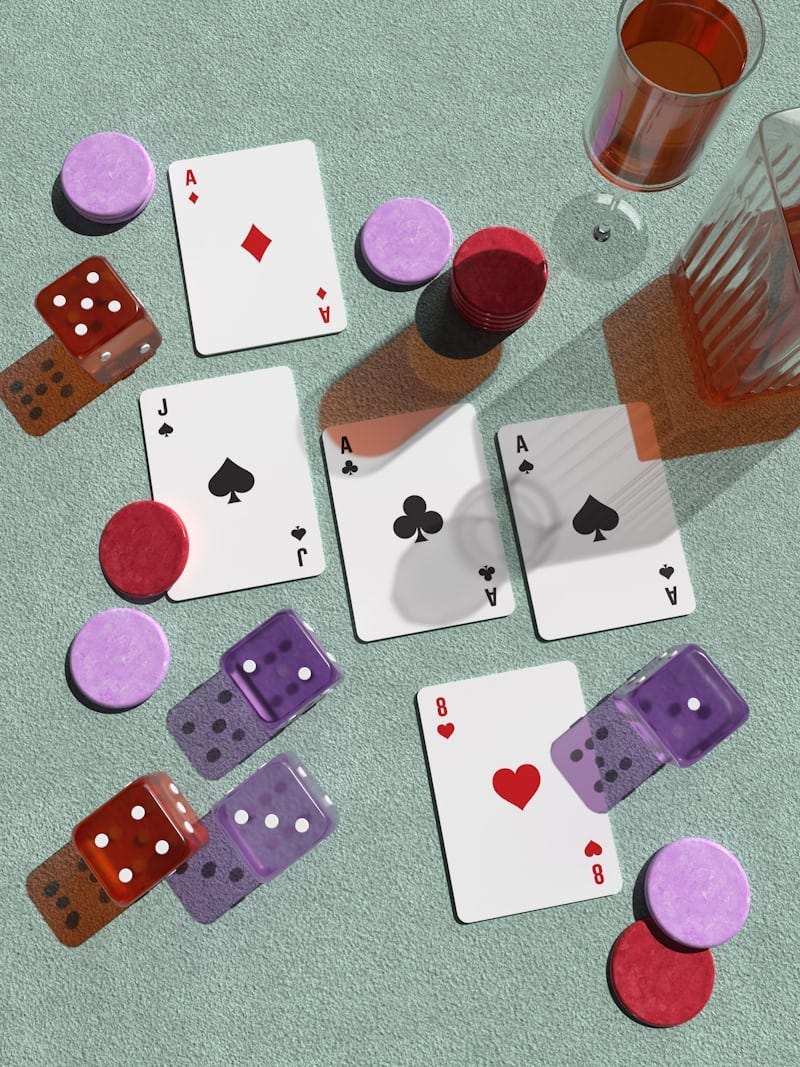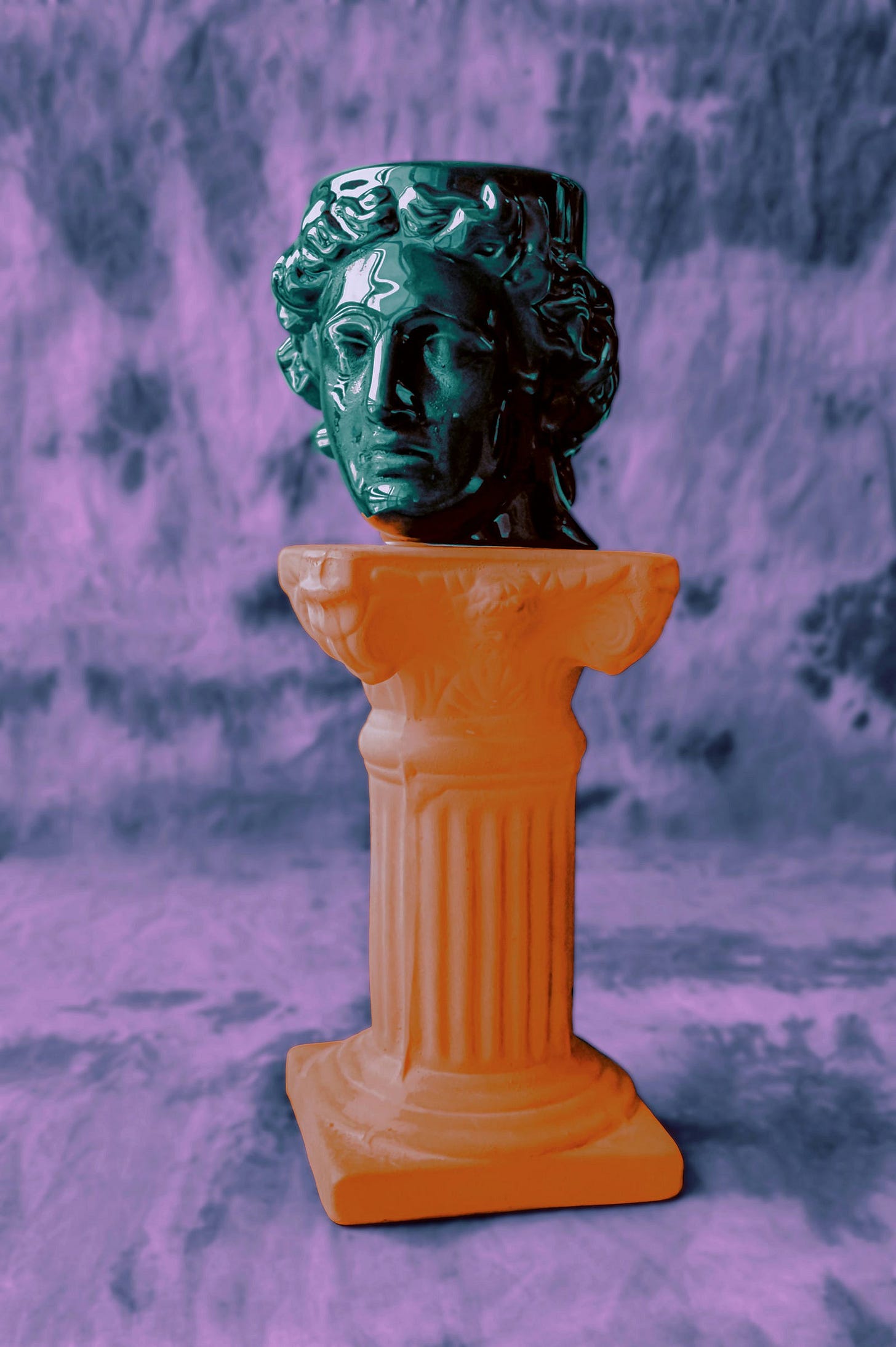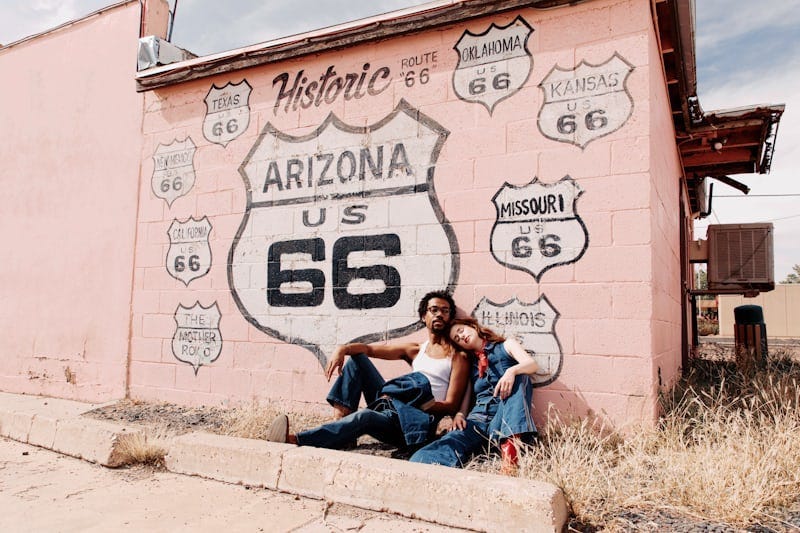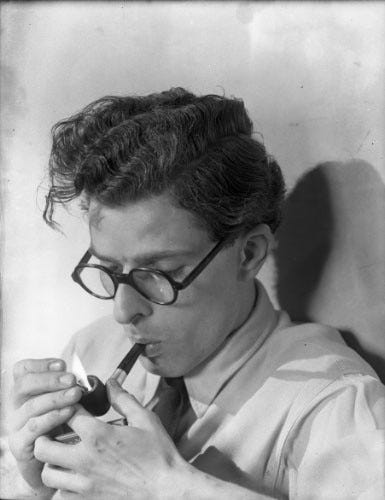The Mad Scribe’s Apprentice: Escaping a Land of Lost Souls
The origin story of a certain Pendragon
OBA Media is grateful to be able to partner with the wonderful and amazing KC to show you how powerful stories are made from sparks of light within darkness. Sharing the otherwise untold and unappreciated stories of others whose paths crossed ours in significant ways is a huge honor. If you need help knowing how to share a story that is close to your heart, please feel free to reach out the story coach team at One Brilliant Arc (OBA)!
Feeding A Pendragon’s Fire
Every artist has their genesis, a moment of raw, unfiltered, “Holy cow, I need to get out of here”—the kind of revelation that smashes into you like a brick through a windshield. For me, it wasn’t some starry-eyed awakening in a college lecture hall or a romantic Tarzan-Esque safari in some far-off corner of Africa.
Nah, my grand epiphany was born out of a brutal, merciless environment—an unrelenting lack of everything a person is supposed to have to survive and flourish.
And when I say “lack,” I mean absolute, screaming void. No money. No running water half the time. No electricity. Washing my face, hair, and my drawls in rainwater when the sky saw fit to cut me a break. Wiping my ass with old newspapers, book pages, and whatever scraps of fabric I was willing to sacrifice. (One of those books was The Art of the Deal by Donald Trump, which, in hindsight, is hilarious considering the man went on to become president. The irony would be delicious if it wasn’t so grotesque.)
This was the kind of place where hope came to die: a backwoods, Southern graveyard of ambition where everyone was either scraping by or sinking fast. It was Kid Rock’s “Cowboy”; it had big King of the Hill energy with a side order of Gangland—trailer parks and corner stores, rusted-out cars in front yards, liquor bottles and heroine needles scattered across sidewalks like breadcrumbs, and kids learning to cuss before they could spell their own names. A town that felt cursed, where the air carried the weight of generations who tried and failed to claw their way out.

I learned early on that the only way to survive was to escape—if not physically, then mentally. So, I dreamed hard and hallucinated harder.
When the lights got cut off, I imagined myself as a casino queen under the neon glow of Las Vegas.
When the water was shut off, I pictured bejeweled platinum goblets that refilled themselves on command.
And when the fridge was bare, I imagined feasting like goddamn royalty.

At first, these were just private indulgences, a kind of masturbation for the soul—a mental anesthesia. But then, something shifted. My mind started spinning entire worlds, full of people who weren’t me, places I'd never seen but where absolutely anything was possible, stories that felt more real than anything around me at the time. I had no choice but to start writing it all down.
Somewhere around 2007 or 2008, while still in elementary school, I pounded out my first story. Inspired by The Fifth Element, Tombstone, Rambo III, Resident Evil, Underworld, Blade 2, Demolition Man, Highlander, Steven King's Rose Red, The Scorpion King, Gladiator, Van Helsing, The Cave, The Descent, Doom (2005), Anaconda Blood Orchid, and a hundred other films I probably shouldn't have been watching. With these films as my muse, I sloppily created Blood Drop Odyssey—a fever dream about a post-9/11 soldier from the fictional town of Red Sugar, Georgia, who fought fire djinn in a lost subterranean city full of demons.

The main character of this serial, Saber Rome, died in action and got reincarnated in the Wild West as the son of a Comanche chief and a Chinese assassin-prostitute (Cathouse Darling of Ebon Mesa, Texas). From there, my little story went full-force crackhead. Saber became a fur trapper, a duelist, an outlaw, and eventually monster hunter across England, Mongolia, Siam, Java, The Philippines, & Romania—like Van Helsing but with less brooding and more thrill.
I managed to finish the thing in 2009. It was raw, messy, completely unhinged…and I was extremely proud of it despite all its glaring flaws.
And then, Patrick arrived.
The Mad Scribe & His Library of Dreams
Uncle Patrick rolled into town that summer like a ghost from another era, having spent the last few years on an existential road trip down Route 66, searching for—what? Himself? A lost America? Who knows. The man was a living anachronism, a historian of all things strange and forgotten. He loved ancient Egypt, Lord of the Rings, 1980s-1990s’ rock and metal, retro fashion. He spent his mornings smoking a pipe like a hobbit nonchalantly watching the world crumble around him.
He moved into our shabby shotgun house under the rule that he’d split his food stamps and pay his share of the bills. The rest of the family branded him as odd, weak, a useless dreamer—head lost in the clouds. At first, I believed them. But then I watched him work.
Every night, after supper, Patrick would sit down at his typewriter with a cup of tea, a lit Camel Turkish Royal, and the unwavering discipline of a man possessed. He had been writing since he was 16 years old or so, spinning elaborate tales of Egyptian warriors and doomed lovers, epic adventure, forgotten gods, and crumbling empires. The man breathed stories the way most people breathe air.
After a month of observing him, I finally mustered up the courage to show him my work. Because everyone else in the house had, I was expecting him to dismiss it, too. Instead, he read it. And he took me seriously.
On weekends, Patrick became my mentor, tearing through my pages with the precision of a battlefield surgeon. He taught me discipline, showed me how to fuel my creative engine, and drilled into me the sacred ritual of devouring every book, film, and scrap of knowledge that could sharpen my craft.

He dragged me to the library, handed me Anne Rice and Neil Geiman, made me sit through Hellraiser, Gangs of New York, Merlin, Far and Away, Mad Max, and the 13th Warrior. He taught me how to mine inspiration from the chaos and refine it into something gorgeous.
For four years, he was my guide through the literary wilderness. Without him, I might have lost my way entirely.
The Death of a Writer
And then, something broke.
As time dragged on, the world caught up to Patrick, and it did not spare him. He started drinking more, writing less. His fire dimmed; his pages grew fewer. He built himself a small library—a mausoleum, really—stuffed with every story he had ever written. Then, one day, the furnace went cold, and he stopped writing altogether.
He never got published, never found the audience he deserved. He just faded, piece by piece, like an old myth no one bothers to tell anymore.
I don’t know where he is now. He's somewhere between 41 to 47 years old, a relic of a different time, his talent buried beneath years of disappointment. Every now and then, I hear whispers—someone saw him, someone spoke to him. But I haven’t seen him in years.

I had every intention of making it out of this sarcophagus of a town. But much to my dismay and sorrow, my uncle never could. Still, the lessons he taught me—the passion, the obsession, the hunger— lives on in me. And for that, I owe him everything and so much more.
At the time of writing, the world is a raving beast, foaming at the mouth, gnashing its teeth in the dark. Mutually assured destruction isn’t some relic of Cold War paranoia — it’s the hellfire we feed with gasoline, the ghost in every machine. And if you find yourself stranded in some two-bit American purgatory, drowning in debt, dead dreams, and the gnawing suspicion that the stars on that flag were always just painted-on illusions, know this — you are not alone. You will claw your way out. You will wrestle your power back from the lion's jaws. You will plant your money tree in scorched earth and make it grow. And when the time comes, you will escape to forge a life much better than the one you know now.
But whatever you do — hold fast. Do not bow. Do not shatter. Not now. Not ever.
📰 Be sure to subscribe to my Substack newsletter! It’s packed with a variety of pieces Writing tips, personal stories, social commentary, Art analysis, & True Crime. Join the community and stay in the loop—consider subscribing. 🙂⬇️








